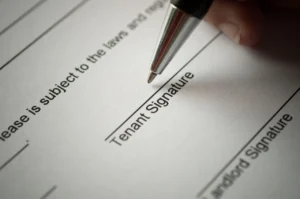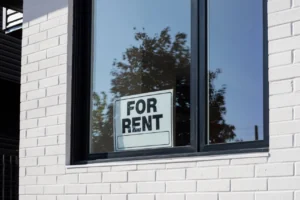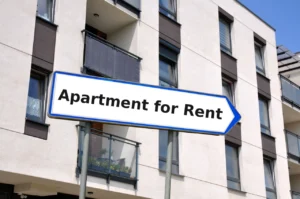Rental Income Taxes: Tips from the IRS
 While the new year brings a new beginning filed with hope, plans and resolutions, it also makes us realize that tax season is right around the corner. Not even the most organized planner greets this realization with much enthusiasm.
While the new year brings a new beginning filed with hope, plans and resolutions, it also makes us realize that tax season is right around the corner. Not even the most organized planner greets this realization with much enthusiasm.
Even if you hire a professional tax preparer, it helps to understand the basics of filing an income tax return that includes your ownership of investment property. This knowledge will make the tax return experience less stressful and intimidating for you.
We’ve turned to the Internal Revenue Service for tips on how to make tax season less overwhelming for investors with rental property income.
What is rental income?
All amounts you receive as normal payment for the use or occupation of residential property that you own in full or in part are considered rental income. (Residential property may include a single house, apartment, condominium, cooperative, mobile home, vacation home or similar property.)
However, there are additional sums of money that may be deemed rental income by the IRS and therefore, must be reported on your income tax return:
- Advance rent. If you collect rent in advance of the time it covers, you must declare it as gross income in the year in which you receive it.
- Security deposit. If you are paid a security deposit that you will return to the tenant at the end of the lease, it should not be declared as income for the year in which you receive it. But if the deposit is to be used as a final payment of the lease (i.e., the last month’s rent), the security deposit is then advance rent and has to be included in your income during the year you receive it. If you retain a portion or all of the security deposit during any year, for instance to cover damages to your property, that amount needs to be declared as income during the year in which you kept it.
- Payment for canceling a lease. If your tenant wants to end the lease and pays you money to do so, that payment is considered rent and must go on your return as income.
- Services rendered by tenant. If a tenant performs some service to you in lieu of rent, the fair market value of those services must be included in your return as rental income.
- Special rules. If you rent out a dwelling that is considered a residence for less than 15 days during the year, you do not need to report the payment as rental income. In addition, you could not deduct any expenses arising from that rental. A dwelling is considered a residence when its owner uses it for personal reasons for more than 14 days during the tax year or 10 percent of the total days they rent it out to other people at a fair rental value, whichever is greater. When the taxpayer is occupying the residence in order to perform maintenance or repair on the property, it is not categorized as personal use.
- Lease with an option to buy. If your tenant is paying you an amount over the agreed upon rent and that money will go toward their purchase of your property, that payment is counted as rental income. If the tenant does buy the property, the payments received after the date of sale are then part of the selling price.
What deductions can I take for my rental income taxes?
As the owner of a rental property, you are allowed to deduct numerous expenditures, including operating expenses, property taxes, insurance, investment property mortgage interest, depreciation, and advertising costs. You may also deduct payments for commissions, legal and other professional fees, management fees¸ utilities, housekeeping and repairs to the property.
- What if my rental business fails to make a profit? Income and expenses from rental real estate must be reported on your tax return. If you have a shortfall from your investment property, it may not be allowed unless you reduce that loss. You may be able to take that loss against other income according to the passive activity loss rules, at-risk rules and personal use of a rental dwelling rules.
- Can I claim my home office as a business expense? If you use a room or other dedicated space in your home exclusively for your rental business, you can claim a portion of your house expenses as a deduction against your rental revenues. The deduction can be calculated based on a formula using the office’s square footage or by how many rooms it contains versus the total number of rooms in the house, whichever result is the larger deduction.
- Are professional and legal fees deductible? If you consult with a lawyer about your business or have an accountant prepare and file your business taxes, the rental-related portion of the expense can be deducted.
- How can I deduct my vehicle mileage? By tracking the mileage you drive for business purposes, you can deduct that amount from your rental income. These activities can include showing your property to prospective tenants, collecting rents and buying supplies. The IRS posts mileage rates on their website (beginning January 1, 2022, the standard mileage rate for business use is 58.5 cents per mile). Or you can use a percentage formula for vehicle expenses, such as gas, insurance, repairs and maintenance. You may also deduct the cost of a lease or loan interest.
- Can I claim travel expenses on my tax return? If your investment property is located in an area other than where you live, you can deduct expenses incurred while you are away from home if the primary purpose of the trip is to collect rental income or to manage, conserve or maintain your rental property. These expenses may include transportation, car rental, taxis, lodging, meals, tips and other ordinary and necessary expenses related to your business travel. You can’t deduct the cost of traveling away from home if the primary purpose of the trip is to improve the property. The cost of improvements is recovered by taking depreciation.
- What are some other deductible expenses? The expenses you incur while preparing to rent your residential property can be deducted from your gross rental income. These expenditures can include cleaning costs, advertising and the process of qualifying new tenants, such as tenant screening background checks.
- Where can I get information regarding deductions for vacation properties? Publication 527 of the Internal Revenue Service website includes detailed information on the expenses you can deduct if you rent a condominium or cooperative apartment, if you rent part of your property, or if you change your property to rental use for vacation use.
What items are not deductible?
The costs of improvements to your investment property may not be deducted unless they enhance or upgrade it. A restoration or adaptation to a new or different use is also determined to be a deduction. Improvement costs are recovered through depreciation over a period of years; only a portion of those costs are deductible in the year in which they are incurred. Depreciation can begin in any year you make an improvement or add furnishings.
If you have a property that you normally rent out but personally use on occasion, such as a vacation home, you must divide your expenses between rental use and personal use. You may not be able to deduct all of the rental expenses if they exceed your rental income.
What records should I keep?
Keeping business records in an up-to-date, organized form will make tax time much easier and allow you to be current with the status of your investment. Maintain your rental income and expense files so that you can approach tax season, and your tax preparer, with confidence. Be sure to carefully document your income and deductible expenses. Retaining all bank statements, business receipts, canceled checks and paid bills to authenticate your deductions will make tax time much less stressful and result in a more favorable outcome.













 Accessibility
Accessibility